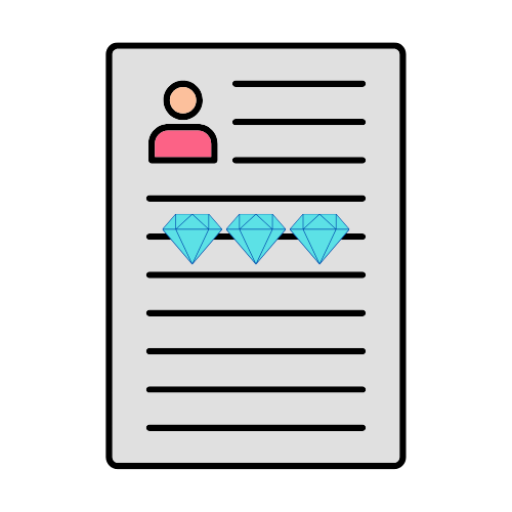Health Economists are professionals who leverage economic theories and quantitative methods to examine and assess the performance of healthcare systems, policies, and interventions. Their primary focus is on evaluating the financial implications, advantages, and operational efficiency of various healthcare services, medical treatments, and health programs. This analysis is crucial for guiding informed decisions and optimizing resource distribution within the healthcare industry.
In their day-to-day work, Health Economists engage in a variety of tasks, including conducting in-depth research, constructing economic models, and offering expert insights on a range of healthcare-related topics. These may include healthcare funding mechanisms, insurance systems, drug pricing strategies, and public health campaigns. The overarching goal of their efforts is to enhance the efficacy and overall value of healthcare delivery, while carefully balancing considerations such as financial limitations, health-related outcomes, and equitable access to care.
A crucial step in landing a Health Economist position is excelling in your interview. To help you prepare, we’ve compiled 10 essential interview questions for aspiring Health Economists. Below, you’ll find these key questions along with sample answers to the most critical ones, giving you a solid foundation for your upcoming interview.
Interview Questions for a Health Economist
- Can you explain the concept of cost-effectiveness analysis and its application in healthcare decision-making?
- How do you approach economic evaluations of healthcare interventions or policies?
- What role does Health Economics and Outcomes Research (HEOR) play in informing healthcare policies and resource allocation?
- Can you describe your experience with health economic modeling and the key components you consider when developing a model?
- How do you incorporate equity considerations into your economic analyses of healthcare interventions?
- What methods do you use to measure and analyze patient-reported outcomes in health economic studies?
- How do you stay updated on the latest developments and trends in health economics?
- Can you explain the concept of quality-adjusted life years (QALYs) and their significance in health economic evaluations?
- How do you handle challenges related to data limitations or biases in observational studies used for health economic analyses?
- Can you discuss your experience in communicating complex health economic findings to non-technical audiences, such as policymakers or healthcare providers?
Sample Answers for the Top 4 Interview Questions
Can you explain the concept of cost-effectiveness analysis and its application in healthcare decision-making?
What they’re looking for:
The interviewer wants to assess your understanding of a fundamental concept in health economics and its practical application. They’re looking for your ability to explain complex ideas clearly and demonstrate how theoretical concepts translate into real-world healthcare decision-making.
Sample response:
In my previous role as a health economist at a state health department, I applied cost-effectiveness analysis to evaluate a proposed diabetes prevention program. We compared the costs of implementing the program against the potential health benefits, measured in quality-adjusted life years (QALYs). Our analysis showed that the program would cost $35,000 per QALY gained, which fell below the department’s willingness-to-pay threshold of $50,000 per QALY. This evidence was crucial in the decision to fund and implement the program, ultimately leading to improved health outcomes for our target population and more efficient use of limited healthcare resources.
Tips for Tailoring Your Response:
When crafting your answer, focus on a specific example from your experience where you’ve applied cost-effectiveness analysis. Highlight the impact of your analysis on decision-making and emphasize how it led to improved resource allocation or health outcomes. If you’re new to the field, discuss a case study you’ve analyzed or a theoretical application you’ve studied, demonstrating your understanding of the concept and its real-world implications.
How do you approach economic evaluations of healthcare interventions or policies?
What they’re looking for:
The interviewer wants to assess your methodological approach to economic evaluations and your ability to apply economic principles to real-world healthcare scenarios. They’re looking for your understanding of different evaluation types, your analytical process, and your ability to consider multiple factors when assessing healthcare interventions or policies.
Sample response:
In my previous role at a health policy research institute, I led an economic evaluation of a proposed national diabetes screening program. We used a cost-utility analysis approach, developing a Markov model to simulate the long-term health outcomes and costs associated with early detection and treatment versus the status quo. Our analysis incorporated data on screening costs, treatment efficacy, quality of life impacts, and long-term complications. The results, expressed in incremental cost per quality-adjusted life year (QALY) gained, showed that the program was highly cost-effective at $28,000 per QALY. This evidence was instrumental in the government’s decision to implement the screening program nationwide, potentially improving health outcomes for millions of at-risk individuals.
Tips for Tailoring Your Response:
Focus on describing a specific project you’ve worked on, highlighting the key steps in your approach and the impact of your analysis. If you’re less experienced, discuss a case study you’ve analyzed or a theoretical approach you would take, emphasizing your understanding of economic evaluation principles and their application to healthcare decision-making.
What role does Health Economics and Outcomes Research (HEOR) play in informing healthcare policies and resource allocation?
What they’re looking for:
The interviewer wants to assess your understanding of HEOR’s practical applications in healthcare decision-making. They’re looking for your ability to articulate how HEOR evidence influences policy formulation and resource allocation, demonstrating your grasp of the field’s real-world impact on healthcare systems.
Sample response:
In my role as a senior health economist at a government health agency, I led a team that conducted a comprehensive HEOR study on a new cancer screening program. Our analysis incorporated cost-effectiveness data, budget impact projections, and patient-reported outcomes. The results showed that implementing the program would lead to earlier cancer detection, potentially saving 2,000 lives annually, while also reducing long-term healthcare costs by $50 million over five years. We presented these findings to policymakers, which directly informed their decision to allocate funding for a nationwide rollout of the screening program. This experience highlighted how HEOR can provide crucial evidence to support informed policy decisions and efficient resource allocation in healthcare.
Tips for Tailoring Your Response:
Focus on a specific project where you’ve seen HEOR directly impact policy or resource allocation decisions. If you haven’t had direct experience, discuss a case study you’re familiar with, emphasizing the link between HEOR evidence and decision-making. Highlight your understanding of how HEOR can address both clinical and economic aspects of healthcare interventions.
Can you describe your experience with health economic modeling and the key components you consider when developing a model?
What they’re looking for:
The interviewer wants to assess your practical experience in health economic modeling and your understanding of its key components. They’re looking for your ability to design and implement models that accurately represent complex healthcare scenarios, as well as your knowledge of the critical elements that ensure a model’s reliability and usefulness in decision-making.
Sample response:
In my role as a senior health economist at a pharmaceutical company, I led the development of a Markov model to evaluate the cost-effectiveness of a new cancer therapy. The situation required a model that could capture long-term outcomes and costs over a 20-year time horizon. I structured the model to include health states representing different stages of disease progression, incorporating data on treatment efficacy, adverse events, quality of life, and healthcare resource utilization. A key challenge was accounting for uncertainty in long-term outcomes, which we addressed through probabilistic sensitivity analysis. The resulting model demonstrated that our therapy was cost-effective compared to the standard of care, with an incremental cost-effectiveness ratio of $45,000 per QALY gained. This analysis was crucial in securing favorable reimbursement decisions from several national health technology assessment bodies.
Tips for Tailoring Your Response:
Focus on a specific modeling project you’ve worked on, highlighting the key decisions you made in its development and the impact of your analysis. If you have limited hands-on modeling experience, discuss your theoretical knowledge of model components and how you would approach building a model, drawing on any relevant coursework or case studies you’ve analyzed.




